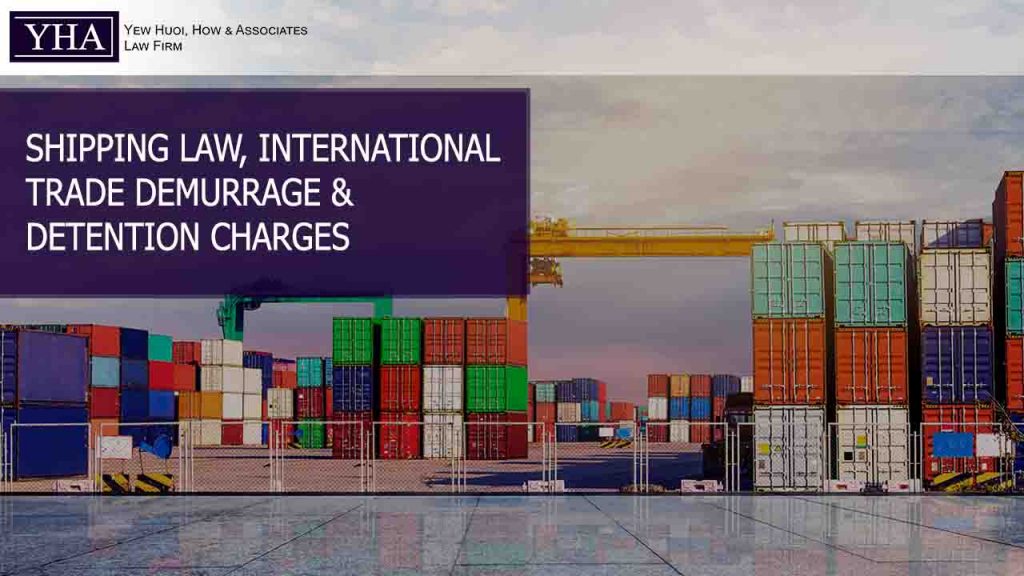SHIPPING LAW, INTERNATIONAL TRADE DEMURRAGE & DETENTION charges
Recently there is a dispute between shipping lines and shippers on landside charges imposed. Shippers (represented by MNSC and FMFF) claimed shipping lines to be “profiteering” from these charges. Two of these charges are demurrage and detention. What are demurrage and detention and whether they are charges valid under the shipping law in Malaysia?
What are demurrage and detention?
Most charterparties will provide agreed lay days for loading and discharging of cargo to be completed. Charterer is required to complete loading and discharge during this period. This period is known as “laytime” or “lay days“.
However, some charterparties will provide for “additional” period (on top of laytime) for charterers to complete loading and discharge on payment of a fixed daily amount. This is termed demurrage. For example, if the agreed laytime in a charterparty is fixed for “3 days after which demurrage at RM1,000.00 for an additional 3 days” and if loading is completed on the 5th day, the liner is entitled to charge demurrage of RM2,000.00 (being an additional period of 2 days outside laytime to complete the loading operation).
By relying on the above example, what happened if loading cannot be completed on the 6th days and was completed on the 10th day. In this situation, the additional days outside the number of days fixed for demurrage is also known as “detention”. Liner is then entitled to be paid “detention charges” or “damages for detention“. On a side note, if demurrage is not provided in a charterparty, any additional days spent to complete loading and discharge will be treated as detention too.
Are demurrage and detention valid charges in Malaysia?
It must be remembered, demurrage and detention are purely creation of contract in English law. These are essentially “liquidated damages” in English law required to be paid in contract as a result of the charterer’s breach for its failure to load or discharge within laytime. In UK, liquidated damages are allowed to be claimed as long as they are not “extravagant and unconscionable” in which event it will be treated as a penalty.
However, unlike in the UK, there is no distinction between liquidated damages and penalties in Malaysia. Any sum named in a contract as the amount to be paid in case of breach it is to be treated as penalty. In another words, demurrage and detention (which is essentially a sum named in a contract) is treated as a penalty in Malaysia. It follows that liner is only allowed to recover “reasonable compensation” under Section 75 of the Contracts Act notwithstanding what is stipulated as demurrage and detention in the charterparty. Liner is required to prove actual damage suffered before they are entitled to claim demurrage and detention.
Hence, whenever there is a claim for demurrage and detention in Malaysia, Charterer should insist upon the liner to show actual losses. Ask the liner what are the actual losses liner would suffer as a result of delay. Charterer in Malaysia should recognise that there is a difference between shipping law in Malaysia and that of the shipping law in the UK insofar as demurrage and detention is concerned.

